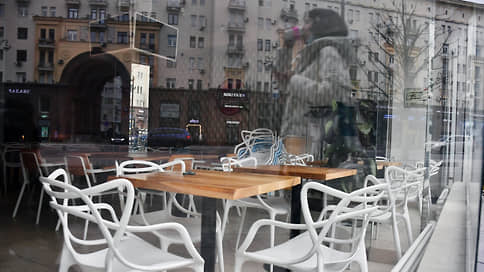Restaurants are emptying in Moscow
[ad_1]

After the announcement of the mobilization, Muscovites again switched to a savings model of behavior and reduced their trips to restaurants. Last week, traffic in the capital’s establishments was 17% less than a week earlier, and 27% year-on-year. Some restaurateurs also talk about a more serious drawdown of up to 50% due to the loss of guests who left the country. Market players do not expect improvement of the situation yet. To maintain the profitability of the business, they plan to reduce the number of staff changes and negotiate with the owners of the premises to reduce rental payments.
The number of orders in Moscow catering establishments last week after the announcement of partial mobilization decreased by 17% compared to the previous week and by 27% yoy, Focus Technologies calculated. According to them, the revenue of restaurateurs at the same time decreased by 18% year-on-year and week-to-week.
Mikhail Goncharov, co-owner of the Teremok network, says that traffic in his establishments has decreased by 15-20%, depending on the location. Yevgeny Nichipuruk, the founder of the Rakovaya gastrobar chain, recorded that in the first days after the announcement of partial mobilization, restaurant attendance decreased by 15–20%, but by Monday, revenue had fallen by 50%, and some establishments “were practically empty.”
In Gagawa establishments, traffic fell by an average of 9%, Lenar Kutlin, general director of the network, said. In the Moscow restaurants of the Rosinter group (managed by the chains IL Patio, TGI Fridays, Planet Sushi, Shikari and others), revenue decreased by 8-15%, while in the regions the figures remained the same.
The Shokoladnitsa Group of Companies claims that, although the attendance of their establishments decreased slightly last weekend, the flow of guests recovered on Monday. According to the founder of One Price Coffee, Sergey Rumyantsev, in the chain’s coffee shops, revenue last week fell by 1.5% w/w and by 6.5% y/y.
Against the background of the expectation of new sanctions, the transformation of the economy and the announcement of partial mobilization, the Russians expectedly began to adjust consumer behavior, explains Mikhail Vasilyev, head of research and consulting at Focus Technologies.
The departure of citizens abroad could also play a significant role in reducing traffic in the catering market, Mikhail Goncharov believes. Yevgeny Nichipuruk believes that some Muscovites have stopped going to restaurants due to stress.
Lenar Kutlin and Mikhail Goncharov note that traffic fell mainly in establishments in shopping centers. This is due to the outflow of buyers, explains Mr. Goncharov. Although, according to the latest data from Focus Technologies, the Mall Index (reflects attendance per 1,000 sq. m of retail space) from September 21 to 25 in Moscow shopping centers turned out to be only 4% lower week by week.
“Restaurateurs have already experienced a similar experience during the coronavirus restrictions and the start of a special operation of the Russian Federation in Ukraine, so we expect a deterioration in attendance in the near future,” says Evgeny Nichipuruk.
To maintain the profitability of the business, he continues, it is planned to reduce costs – remove dishes from the menu with large write-offs of raw materials, reduce the number of shifts of waiters and cooks. In addition, it is planned to negotiate with suppliers and landlords on discounts and installments, adds Sergei Rumyantsev. But Evgeny Nichipuruk doubts that he will be able to negotiate with the owners of the premises.
If low sales continue for more than three months, the restaurant market may expect a wave of closures, Mikhail Goncharov warns. Closings may begin now, Evgeny Nichipuruk summarizes: establishments are faced with the fact that senior management personnel, including chefs and sushi chefs, have been mobilized, and it is still problematic to find a replacement for them.
[ad_2]
Source link





